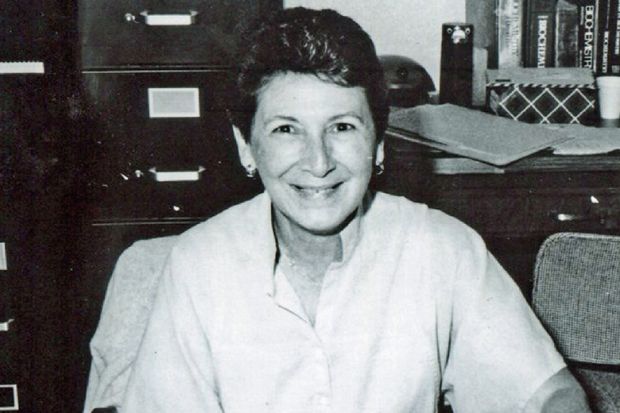A pioneering female chemistry professor has died.
Joanne Ravel was born in Austin, Texas in July 1924, one of 10 children in a family that had emigrated from Poland in the early 20th century. She would spend her whole life in the city, studying at Austin High School before going on to a first degree (1946) and then a PhD (1954) at the University of Texas at Austin. In 1956, she took up a position as a research scientist at the Clayton Foundation Biochemical Institute at UT Austin.
Although she continued her research work at the institute for the rest of her career, the university was aware that there was not a single female lecturer in the chemistry department. In 1972, therefore, she was appointed associate professor, teaching an introductory course on biochemistry as well as supervising both doctoral and postdoctoral students. She was later promoted to professor and, in 1979, Ashbel Smith professor, a post she continued to hold until she retired and became emeritus in 1987.
It was also through the university that Professor Ravel found love. For many decades, one of the major features in the Texan sporting calendar was the annual American football match between the two largest universities in the state, UT Austin and Texas A&M University. It was while attending this event at College Station on Thanksgiving Day in 1945 that Professor Ravel met her future husband Jerome Ravel, a returning veteran. They were married the following year, and it became a family tradition to attend the game every year. When he died in 2003, she created a scholarship in his honour for students specialising in primary care.
A member of the American Society of Biological Chemistry, the American Chemical Society and the American Society of Microbiologists, Professor Ravel was also what an obituary in the Austin American-Statesman described as “a yellow dog Democrat” (ie, a southerner who would rather vote for a yellow dog than a Republican), adding that she occasionally wrote to the newspaper “suggesting the government consider taxing people like her more and using the money to provide services for those in need”.
A keen traveller, Professor Ravel went to Israel with her grandson Ben when almost 90 and had an emotional meeting with relatives last heard from before the Second World War and believed to have been killed in the Holocaust. She died on 28 June and is survived by her daughter Margaret, son Stephen, four grandchildren and four great-grandchildren.



